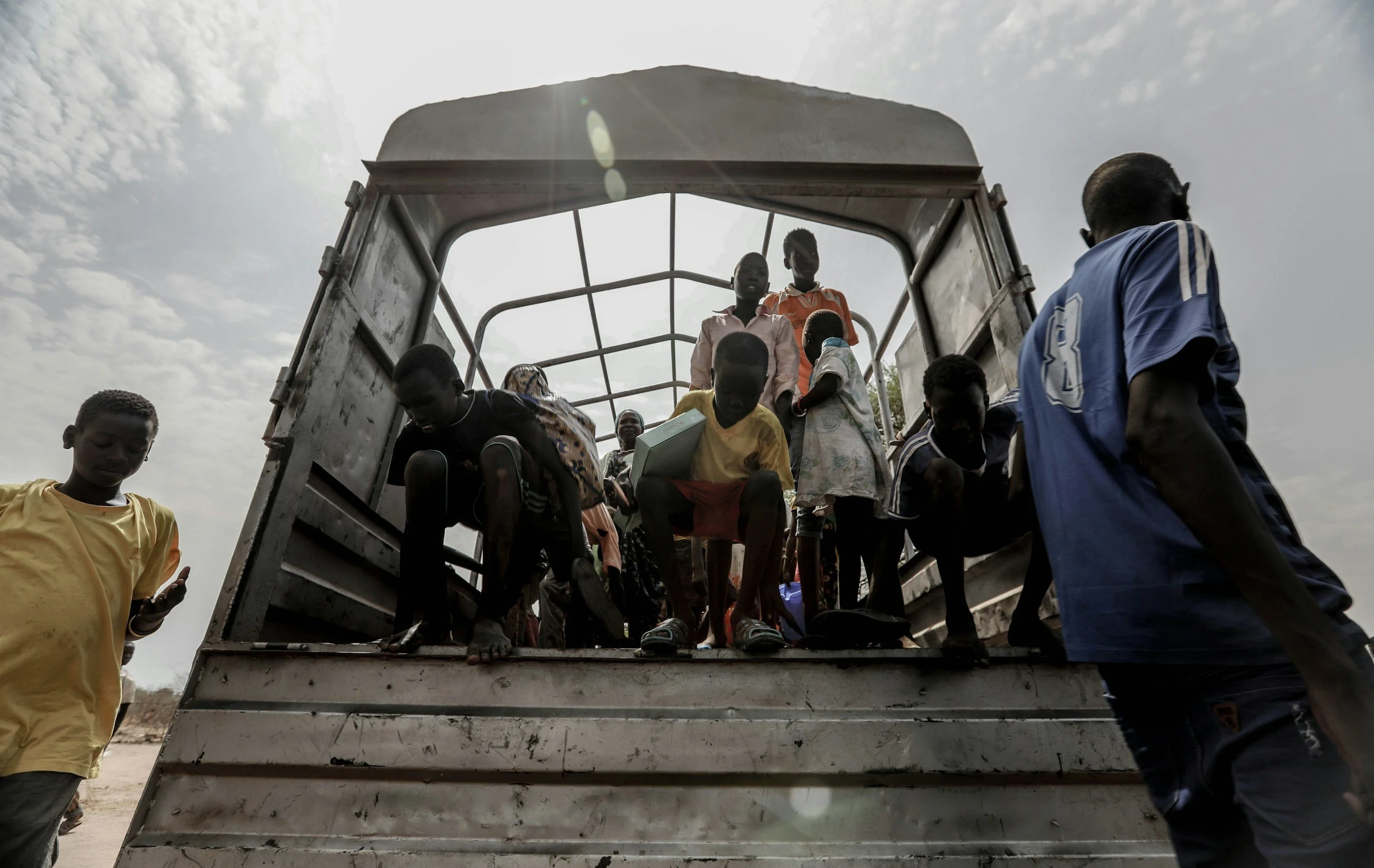Disclaimer
The information provided on this website is for general informational purposes only and does not constitute legal advice. While we strive to keep the information accurate and up to date, Canadian immigration laws and policies are subject to change without notice. No visitor to this site should act or refrain from acting based on the content herein without first seeking appropriate professional advice from a licensed immigration consultant or lawyer.
Using this website or reading its content does not create a consultant–client relationship with Arrowhood Immigration Services Inc. If you have specific questions about your immigration situation, please contact us directly for a personalized consultation.

Case Insight: "Red Flags" and "Startlingly Poor Representation" in Maan v. Canada (2025 FC 1805)
In Maan v. Canada (2025 FC 1805), a spousal sponsorship refusal was upheld based on "red flags" from a landlord's conflicting statement. However, this case became a must-read for a second, more dramatic reason: the Federal Court’s rare decision to order the applicant's lawyer to personally pay costs for "startlingly poor representation."

Fraudulent Bank Statement Leads to Refusal of Work Permit in Misra v. Canada
In the recent Federal Court decision of Misra v. Canada (Citizenship and Immigration), the applicant, Sattabrata Misra, challenged a visa officer's refusal of his work permit application. The refusal was based on the officer's finding that he was inadmissible under section 40(1)(a) of the Immigration and Refugee Protection Act (IRPA) due to misrepresentation.
Misra had applied for a work permit from Singapore and submitted two sets of bank statements. One set, from First Security Islami Bank, was not contested. However, a second set from Bank Asia Limited raised concerns. The documents from Bank Asia included a letter and an account statement with two vastly different balances: one for 48,382.51 TK and another for 2,548,382.51 TK. The second figure was significantly higher, suggesting it may have been fraudulent.

Federal Court Quashes Study Permit Refusal Over Unjustified Officer Decision
In Ekong v. MCI (2025 FC 1355), the Federal Court found that an officer’s refusal of a Nigerian applicant’s study permit was unreasonable. The Court ruled the decision lacked a rational explanation and failed to consider key evidence showing the applicant’s strong ties to Nigeria, including her career, businesses, and teenage children. The case was sent back for a new decision by another officer.

Federal Court Rules Immigration Officer Applied Wrong Standard in H&C Case
In a significant win for immigration applicants, the Federal Court ruled that an immigration officer applied an incorrect "exceptionality" standard when assessing a humanitarian and compassionate (H&C) application. The case, Olanipekun v. Canada (Citizenship and Immigration), 2025 FC 1255, highlights critical errors that can doom H&C applications and provides important guidance for future cases.

Work Permit Pitfall: The Goyal Case.
Think you can breeze through your Canadian work permit application? The Goyal case serves as a sharp reminder: even seemingly minor oversights can lead to a 'Denied' stamp. One applicant's failure to follow the rules precisely cost them their work permit extension. Don't let this be your story. Here's a quick rundown of what the Goyal decision teaches every applicant...

Credibility at the Core
In the case of Abraham v. Canada (Citizenship and Immigration), 2023 FC 70, the Federal Court's decision emphasizes the critical role of credibility in refugee claims. The court upheld the rejection of a refugee claim based on inconsistencies and omissions in the applicants' testimonies. Learn the key takeaways from this case, and how refugee applicants can strengthen their claims.

Denied Sanctuary: One Man's Fight for Refugee Status While His Family Finds Safety
The path to refuge in Canada is rarely straightforward, and the recent Federal Court decision in Aslam v. Canada (Immigration, Refugee and Citizenship), 2025 FC 655, starkly illustrates this complexity. While his wife and children were granted the sanctuary they sought, Mr. Aslam's claim was denied based on the contentious concept of an Internal Flight Alternative (IFA). This case delves into the intricacies of IFA assessments, the stringent rules surrounding new evidence at the appeal stage, and the challenging reality faced by a self-represented litigant navigating Canada's refugee protection system. Join us as we explore the key takeaways from Aslam and what it means for individuals seeking safety and family unity in Canada.

Sponsorship Success! Federal Court Clarifies MNI Calculation in Sepasi-Ashtiani.
In a significant ruling delivered on June 9, 2025, the Federal Court in Sepasi-Ashtiani v. Canada (Citizenship and Immigration), 2025 FC 1031, granted an application for judicial review, finding an Immigration, Refugees and Citizenship Canada (IRCC) officer's decision unreasonable. The Court determined that the officer erred by assessing the wrong taxation years when determining the applicant's Minimum Necessary Income (MNI) for a spousal sponsorship application. This judgment clarifies the critical importance of identifying the correct "lock-in date" for income assessment in family class sponsorship applications, ensuring that IRCC officers review the appropriate three consecutive taxation years immediately preceding that date. You can read the full decision here: Sepasi-Ashtiani v. Canada (Citizenship and Immigration), 2025 FC 1031

Navigating the Narrow Path: Understanding Deferral of Removal in Canada - Insights from Nam v. Canada (2025 FC 720)
The core of the Court's decision to order a redetermination lay in the Officer's inadequate assessment of the applicant's mental health. The case emphasizes that when mental health is presented as a reason for deferral, the evidence must be comprehensive and directly link the act of removal to a significant deterioration of the individual's well-being, potentially leading to self-harm. Simply stating a diagnosis is insufficient. The evidence must articulate how removal, specifically, would have a severe negative impact beyond the typical stress associated with such proceedings.

Unseen Traps in Canadian Immigration: The Huang Case and Protecting Your Future
A seemingly minor association can derail your Canadian dream. The recent Federal Court decision in Huang v. Canada (Citizenship and Immigration), 2025 FC 699 unveils the far-reaching implications of "membership" in organizations linked to criminal activity, even without a personal conviction. This eye-opening case underscores the absolute necessity of understanding these complex inadmissibility rules. For Arrowhead Immigration Services Inc., it reinforces our unwavering commitment to meticulous client guidance and proactive risk assessment, ensuring your journey to Canada is secure.

Beyond Physical Harm: Federal Court Upholds Broader Understanding of Domestic Violence in Immigration Cases.
This crucial ruling recognizes that coercive control and ongoing manipulation, even after separation, are legitimate forms of abuse, paving the way for greater protection for vulnerable foreign nationals seeking a Temporary Resident Permit.

Federal Court Case Reveals Critical Pitfalls for Business Immigrants.
A recent Federal Court case has revealed critical pitfalls in Canada's Start-up Business Class immigration program that every entrepreneur needs to know. In Achacoso v. Canada (May 13, 2025), business partners lost their permanent residence applications due to technical requirements that are often overlooked. Learn the three essential lessons from this case that could save your Canadian immigration journey, including why a single team member's withdrawal can automatically disqualify all applicants and how timing of documentation submission can make or break your case.

Shadows of the Past: The Francisque Immigration Case and Crimes Against Humanity
The Federal Court, in a decision dated May 2, 2025, upheld the refusal of permanent residence on humanitarian and compassionate (H&C) grounds for Renold Francisque, a citizen of Haiti. The crux of the matter? A prior self-declaration of affiliation with the notorious "TonTon Macoutes" (TM), a group with a dark history of committing crimes against humanity in Haiti. This case, Francisque v. Canada (Citizenship and Immigration), serves as a stark reminder of how past associations can cast long shadows over immigration aspirations.

Pregnancy Pause: Procedural Fairness Prevails in Work Permit Refusal.
The Federal Court on May 6,2025 overturned the refusal of an open work permit for Munashe Sungai, whose application to join his spouse, a student in Canada, was denied based on a flawed assessment. The Visa Officer relied on outdated information from a student compliance portal indicating the spouse was no longer enrolled full-time, failing to consider her approved pregnancy leave. Justice Régimbald found this constituted a breach of procedural fairness, as the Officer did not give Mr. Sungai an opportunity to explain the discrepancy before making a decision based on inaccurate information. The Court emphasized that while the onus is on applicants to provide necessary information, officers have a duty to seek clarification when concerns arise about the accuracy of submitted details.

When "Settled" Works Against You: The Alabi Family and the May 6, 2025 Decision.
“For the reasons set out below, I find the Decision unreasonable and I grant the application." These powerful words from Madam Justice Go in the May 6, 2025 Federal Court decision concerning the [Alabi family] signal a significant moment in the consideration of H&C claims, particularly concerning the best interests of children and mental health.

The Importance of Perseverance, Proper Documentation, and Patience in Immigration Applications.
In D'Souza v. Canada (Citizenship and Immigration), 2025 FC 682, the Court reinforced the importance of perseverance and proper documentation in immigration applications.

The Steep Price of Overstaying: Lessons from Singh v. Canada
Singh v. Canada (2025 FC 705) highlights the harsh consequences of overstaying in Canada. Despite efforts to regain status, Mr. Singh was found inadmissible for non-compliance, and the Court upheld the decision—reminding all that legal status is non-negotiable in immigration matters.

Canada’s Quiet Goldmine for Job Seekers: The High-Demand Trades You Need to Know About.
Looking for a career that guarantees strong wages, job security, and growth opportunities? Canada’s booming construction industry is creating a massive demand for skilled tradespeople. From electricians to heavy equipment operators, discover which trades are in high demand, why they offer future-proof career paths, and how immigrants can get a head start with fast-track immigration options.

Not the End of the Road: What Happens After a Refused Refugee Claim in Canada?
Getting a "no" on your refugee claim or permanent resident application in Canada can feel like a dead end. But don't lose hope! Canada has a few paths you might still be able to take. This simple guide will walk you through some of your options to stay safe in Canada, illustrated by a recent case highlighting the importance of proper assessment.

Future-Proof Careers in Canada: Tech & Innovation
Technology is shaping the future of work — and it’s one of the smartest fields to invest in today. In the first post of our “Future-Proof Careers” series, we explore top Tech & Innovation programs for 2025, in-demand skills, and the career paths international students can pursue in Canada’s evolving job market.